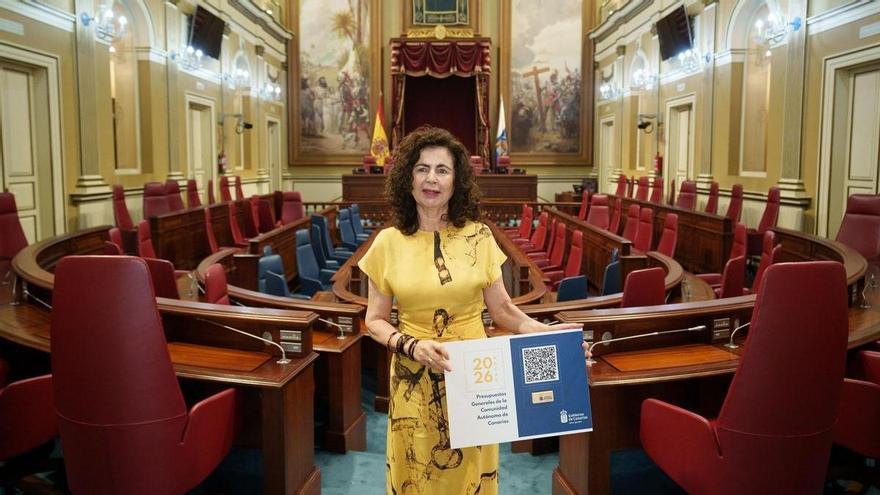Canary Islands 2026 Budget: A Detailed Look at the Financial Plan
The Canary Islands government has officially begun the parliamentary process for its 2026 budget, a substantial financial package totalling €12.491 billion (€13.1558 billion when including financial operations). The proposal was formally submitted to the regional Parliament and is scheduled for final approval in the last plenary session of December.
Key Figures and Tax Strategy
Presented by the Minister of Finance, Matilde Asián, the legislative text spans over 3,600 pages and represents a 7% increase—€813 million more—compared to the current year’s budget. While the highly anticipated reduction of the Canary Islands General Indirect Tax (IGIC) from 7% to 5%, a key campaign promise from both the CC and PP parties in 2023, is still not included, the budget does introduce widespread deductions for all residents within the autonomous region’s bracket for Personal Income Tax (IRPF). Minister Asián argued that this measure will benefit the most vulnerable incomes more than a one-off cut in indirect taxation would have.
Direct Savings for Residents
In total, these tax benefits will allow island taxpayers, primarily workers and pensioners, to save a combined €183 million on their income tax returns next year. This is a significant 52% increase compared to the €120 million in savings provided in the current fiscal year.
New and Enhanced Deductions
A major feature of the budget is the increase in income limits for existing deductions, adjusted in line with the Consumer Price Index (CPI). These include measures designed to address the housing crisis, such as deductions for rental of primary residences (providing €66.9 million in savings funded by the Canarian treasury), home adaptations for disability (€40,000), inter-island relocation (€600,000), and medical expenses (€30 million).
These are joined by deductions for childbirth (expected to save residents €660,000), unemployment, single-parent families, and families with disabled members (€34.8 million in savings), education (€8.7 million), and nursery school costs (€2 million).
Incentives for Home Buyers and Local Investors
A particularly noteworthy introduction is a new deduction that allows taxpayers to claim 20%—with an annual maximum of €4,000—on investments used to purchase shares in companies headquartered in the Canary Archipelago.
Minister Asián, who expressed special enthusiasm for this part of the budget law, also highlighted improved tax deductions for purchasing a primary residence. The age limit to qualify has been raised to 40 years, and the maximum income threshold has been increased to €46,455. The maximum eligible property purchase price has also been raised to €200,000. These specific housing measures are projected to save citizens approximately €13 million. “Raising the income level will allow more of the population to benefit because it better reflects reality, and this will enable a greater number of people to qualify,” Asián stated.
Updates to Special Taxes and Levies
The budget also introduces a graduated tax rate for energy and soft drinks, which will now be based on their level of added sugars. In a move to support green energy, hydrogenated vegetable oil is now classified as a biofuel and will be taxed at a 0% IGIC rate. Furthermore, hospital beds are now included in the category of medical devices that are also taxed at 0%.
Finally, the Import and Delivery of Goods Levy (AIEM) on fuels has been eliminated, as these products “are no longer produced in the Canaries.” To replace this, a specific 1% IGIC rate has been introduced on the delivery and importation of fuel, which is currently taxed at 0%.

